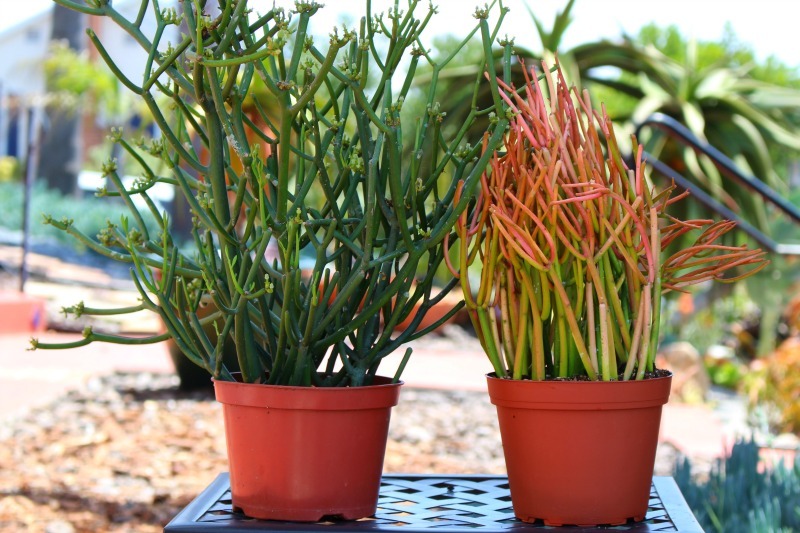It's time for fire sticks to have warning labels
My fiancé and I were recently at Home Depot on a hunt for wonderful plants of different varieties. We walked through aisle after aisle exploring this enchanted green wonderland.
Then we walked into the succulent area. So many beautiful desert plants perfect for the Downey climate and perfect for most of this desert landscape we call Southern California.
Although beautiful, certain ones of these plants you just know not to touch because of the thorns or the needles. One wrong touch and blood may start to appear. So, with that thought, our eyes looked on to the next batch of beautiful desert like plants. And we both landed our eyes on the “fire sticks.”
We both ran over to look at them.
First thing I noticed was that there was no warning label.
The fire sticks are a beautiful plant; you almost cannot take your eyes off of them, like they are calling you, drawing you closer like a magnet. Fire sticks have a proper name of Euphorbia Tirucalli but they're also known as Aveloz, Indian tree spurge, Naked Lady, pencil cactus, milk bush or what we call them, fire sticks.
Fire sticks are a great plant in areas where rain is limited. They grow with very little water. The branches can be cut and planted and cut and planted forever. One plant can turn into an endless garden of fire sticks. The plant can grow up to 20 feet in height if it is supported correctly.
Fire sticks can also be used as a barrier between properties, a wall cover, a window cover or a great burglar deterrent. We say a great burglar deterrent because when not understood, this plant will quickly make you understand. This plant is not to be touched by the uneducated in plant knowledge.
Just brushing up against the plant will make the rest of your day a bad day. This plant grows many beautiful little fingers, but these fingers are dangerous.
They are very sensitive and a small touch at the tips will expose a hot, white, milky sap. This sap will get on your skin and start to itch and burn. If you get enough of it on you, and you begin to itch, it will get on your hands and fingers and without thinking about it, eventually you will play with your hair or rub your forehead.
Before you know it a tiny amount with the help of a little bit of sweat will run down your forehead and into your eyebrows and then make its way into your eyes. That’s when you really begin to hate life. And if you don’t have anyone around to help you, well, good luck.
You will have a hard time even opening your eyes. Looking at your phone will be a difficult task. And you will need your phone to call a loved one, because you will need help. Your eyes need to be flushed out continuously while on your back with a saline solution. This sap, in the worst-case scenarios, can lead to blindness.
Removing the sap is a bit difficult because it acts as glue and dries clear. You may think it is gone, but trace residue can cause major symptoms.
In larger plants, when cutting, the sap will actually squirt at you as though the plant is protecting itself, which makes it essential to wear full body protection when removing these plants.
My family and friends all have this plant and large numbers of it. We have all learned the hard way of dealing with this plant. Even our pets have had their experiences. Now we know how to deal with it.
Like coffee, we love them but they are hot and now we are careful.
But most people will learn the hard way. That’s why we would like to see Home Depot and all other nurseries begin to put a warning label on these plants.
You may recall a time when McDonald’s was sued because someone was burned by hot coffee. Well, everyone knows hot coffee will burn, but McDonald’s was forced to label their coffee cups with “CAUTION HOT!”
Fire sticks don’t have thorns or needles, but they are hot, sticky and can cause blindness. Where is their warning label?
Michael Chirco is a Downey resident and community volunteer. He manages several social media pages, including Where’s the Party Downey and South of Downey.

